When Your Phone Is A Mirror, Everything Is A Selfie
vacuums of duplication, the US election, gaza and the new yorker festival
It is possible that my mind has become so polluted that I can only think of my years as images on my phone’s camera roll. That is, with no chronological grasp on the events that stop and start a year but a colourful stream of vignettes that I sprint through without a contextual railing to hold as I bolt to the next.
I have this issue with time. I never really think of the past. Not because it isn’t important to me, to ‘Us,’ but because I struggle to conjure it. I don’t have many early memories. It takes me too many seconds to remember what I had for dinner last Saturday. Once, a therapist asked me to write down a list of the bad things that have happened to me and had to give me hints because I couldn’t remember. But likely that’s something else.
Years from now, I will think about this specific period of time as a series of duplicate images on my camera roll where each day resembles the last. The collection of images are not different enough to be fraternal, but each new image references the one before. The days squash into each other, creating an elongated plane of time mish-mashed with the usual hallmarks: work emails, poor sleep, Partiful invites, and UberEats receipts I pretend not to see. Each day a facsimile of the last. A faded photocopy. Or a continuum of warped but related messages a la broken telephone, from one cupped mouth to an ear.
Things have become inextricable from each other. Not only is everything a reference to something else but something can be a thing only because its relation to a previous thing. Such is true for the algorithm, such is true for the nepo baby. A new song comes out and I flock to (Rap) Genius to see if I identified the samples correctly only to discover that the song it was sampling was sampling another song I never heard of. Maybe this is why the days all feel the same.
Industries run on this. Hollywood would rather invest in a film reboot or sequel than take a risk on true innovation and then act shocked when it performs poorly.
In fashion, garments are allowed to be ugly if its ‘a reference’ to an ugly thing from a previous collection.
To sell a novel, one must prepare a list of “comps,” that is, books that are similar enough in theme and audience so those in publishing can predict its sales rather than assess the work on its individual merit. Maybe this is why everyone’s writing sounds the same.
To implicate myself in the very thing I am critiquing, I will reference a previous essay, “How To Age Gracefully,” where I wrote:
It’s concerning to see stars embarrass themselves as they try to regurgitate the success of yesteryear, often at the expense of true innovation.
But, in hindsight, my thought was incomplete. Maybe artists repeat themselves not because they can no longer innovate. Perhaps it’s because we, the consumer, can no longer metabolize innovation. We are turned off by change. The edges of novelty are too tough on our tummies and we’d rather have something we can easily digest.
The internet operates this way, too. We are served things not because they are great but because it is believed that we will enjoy them from our previous engagements. On Twitter/X, I like one image of Drew Starkey at the Queer premiere and all of a sudden my whole feed is pictures of Drew Starkey. An elongated extension of images once again. On TikTok, thousands of people lip sync to the same sound, mimicking their mouths like puppets with quips of Tokyo Toni or Tiffany ‘New York’ Pollard or NeNe Leakes or Azealia Banks or whatever Black woman’s thoughts they feel inclined to sever from her body for the sake of online ventriloquism. It’s all reference, zero novelty. It’s kinda like the thing but it's not. We blend like the days, a mashed potato of online puppetry.
I call it: the vacuum of duplication.
A few weeks ago, I was lucky enough to snag a ticket to a talk at The New Yorker Festival where I listened to Jia Tolentino,
, , and Andrew Marantz discuss the perils of our online vacuums of duplication. Imagine: me sardined with the other tote bag-carrying writers and readers to hear a panel of other writers and readers talk about the internet. Another shoddy duplication, I suppose.During the discussion, Tolentino highlighted the dangers of the never-ending cycle of reference and how the internet can make a representation stand in for the real thing. This, over and over, can reduce the impact of the actual thing, she argued as we “accept one in place of the other in a way that’s profoundly consequential.” This can be examined with the online relief shared over Kamala Harris’ nomination for President this summer. We rapidly accepted ‘kamala IS brat’ because it was familiar, already referenced and endorsed by what the algorithm was already showing us rather than interrogate the Democratic Party for real change. What did that get us? My mind sprints back through my camera roll to reference another essay of mine from July. This time, “Have We Lost Our Minds?” where I wrote:
“Recently, I’ve been trying to understand why things need to be memed to the point of infantilization for me to comprehend. For me to pay attention. Everything important seems half-assed or a joke. Joe Biden announced his withdrawal from the presidential race in a tweet. People discovered that Kamala Harris is in the race from Pop Crave. And, honestly, maybe that’s the most effective way to reach us nowadays. It’s all we have bandwidth for. When everything is serious and everything is constantly at stake and everything is on fire…it’s like yeah, I’m going to choose to digest the predictions for Kamala’s VP through a brat green fancam scored to ‘360’ that weaves in edits of the Challengers cast. Is that okay with you?
… The incessant caricaturing and dumbing down of major life events numbs us to their significance. If a meme pokes fun at someone’s bad behaviour, it gives the bad behaviour a pass. Through our rapid meme-fication and IJBOLing, we obfuscate the evil of the muse and cartoon it into something less precise and palpable... I think of memes of Trump or the January 6th insurrection. Although the threat of the muse is blurred beneath the cartoon, it isn’t defanged. It’s us, the prey, whose vision becomes blurry, and becomes the easier target.”
Naomi Klein is also fearful of this. At the festival, she acknowledged that the reduction of reality into a vibe puts humour and lifestyle content within the same contextual frames as the most horrific world events. It blurs horror into the everyday. She said the following to the crowd:
“Reality is real. When I go online I see Gaza. I’m terrified of going online right now. There’s no joy there. There is horror. I don’t think we’ve begun to reckon that these technologies have created a levelling where people in refugee camps in Gaza are on the same platform as us and are begging for their lives in the cadence of the internet.”
There is a 10-year-old cooking influencer in Gaza who will teach you how to make stew in the same ‘internet speak’ as a get-ready-with-me video. By the time Renad Attallah pulls out a stool to teach you how to cook the meal she’s been eating every day for the past two weeks, she has already amassed nearly a million followers on Instagram. She bursts with the electricity of a Bama Rush girlie and delivers cooking recipes confidently to the camera in an oversized grey and purple Miami City sweater. Attallah retrieves a cooking pot, twirls it in the air, and gracefully catches it in her hands before slamming it on a stool with a sly smile.“Let’s get cooking,” she says. Next, her ingredients materialize in her hands through expert slices of edits much like a
cooking video. She adds fava beans, chickpeas and green chiles. She sprinkles salt, her hooked wrist craning in a gesture that references the viral Salt Bae videos. It’s clear that she’s on the same internet we are. It’s clear that she’s aware of us watching her and doing very little about it.The meal highkey looks good, reminding me of the hummus of a popular Mediterranean spot in Brooklyn’s Fort Greene neighbourhood. As she christens the pulp with a lasso of olive oil, Attallah giggles. Behind her laugh, the tenor of the Gaza can be heard but its exact sound is nonspecific. Is it a cloud of children’s laughter? Or is it civilians screaming? Riots? Protests? We are left to imagine.
Attallah’s defiant laughter, a laughter that is aware of its audience, pebbled against the sounds of Gaza remind me of a movie I saw at the top of the year in a theatre a few blocks from the Mediterranean restaurant with the hummus. It reminds me of the chilling soundscape of The Zone of Interest, where the lens focuses on a lush backyard pool party of a German family living next to a concentration camp. It’s 1943. We watch children, who are roughly the same age as Attallah, cannonball into the serene pool while their mothers tan in the Auschwitz sun. While the family luxuriates, the ominous cloud of screams, bullets, and burning from the next-door death camp saturate the sound design. The family appears to not notice but, this time, we do.
Watching Attallah’s videos summons the same dissonance in the film, where we are in the pool and she is our next door neighbour in the camps. It remains unseen if her deployment of internet references will save her, save Gaza, but I am familiar with how the movie ends.
Another risk to the duplication of the internet is that you can become walled in by mirrors of your own engagement. Your thoughts become reconfirmed a zillion times and suddenly you’re filled in a room stuffed with a thousand Drew Starkeys. What a dooming scenario, isn’t it? This, of course, creates a false scale where you believe the world reflects the circular references of your algorithm. It’s Tolentino’s titular Trick Mirror. Naomi Klein’s Mirror World. My ‘vacuums of duplication.’ You believe that surely everyone in America is voting for Kamala Harris when the majority are not. You begin to think everyone understands the obscure references of your feed and is also re-watching Girls. And finally, on a Friday at noon when the GRAMMY nominations get released, you scratch your head with surprise that Camila Cabello’s C,XOXO wasn’t nominated for Album of The Year (kidding lol).
When the results of the election were confirmed early Wednesday morning, the word that I heard a lot was “echochamber.” How the referential aspects of our worlds, the real one and the one online, have caved us into siloed thinking, making us blindingly unaware of what lives beyond ourselves. Our neighbours.
I inspect the vacuum for another essay of mine to duplicate for the purposes of this essay. In “The Problem With Going Viral,” I lobbied the merits of sustaining a community and speaking to a consistent audience over time referencing Charli xcx, Sally Rooney and Drake. I was against meeting your neighbours:
“By making art for a niche, contained audience that grew over time, these artists were allowed to experiment (and crash out) under the protective wings of a trusted fan base, further emboldening loyalty and artistic comprehension.”
But now I see that there are limitations with this approach. I was scared to have my message go beyond my audience. Why? Maybe because I didn’t like what my neighbour might say. That fear has now calcified into a gross misunderstanding. A xenophobia, perhaps. Maybe that is why all the days, and the images in my camera roll, have begun to look the same. When your phone is a mirror, everything is a selfie.
Shortly after The New Yorker Festival, I deleted TikTok. That wasn’t the call-to-action of any of the speakers but I had long begun to worry what the app was doing to my brain and wanted out of its claustrophobic carousel of engagement bait.
But I’d be lying if I said I didn’t miss it. My finger itches for its scroll. I want it back no0o0o0oow. I wonder how long I can last.
Life can be so quiet when you don’t have something available to numb your thoughts with voices that sound like your own. When you have to rawdog the world around you, listen soberly and use your own voice. I hear the rattle of pipes above my head. I hear the garbled tow of car tires on the pavement outside of my house. And I hear the voices of the neighbours, for once and for all, and the days begin to look different.
If you can, consider donating to Doctors Without Borders to support hospitals and civilians in Gaza or provide internet access through eSIMS in Gaza. Thank you.
LOOSEY is a bi-weekly newsletter about culture, technology, and the way we live. If this is something you like, consider subscribing and sharing. Let’s be friends on Instagram.


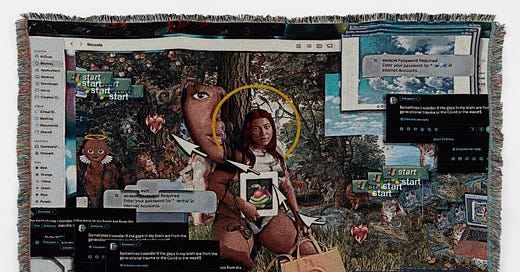



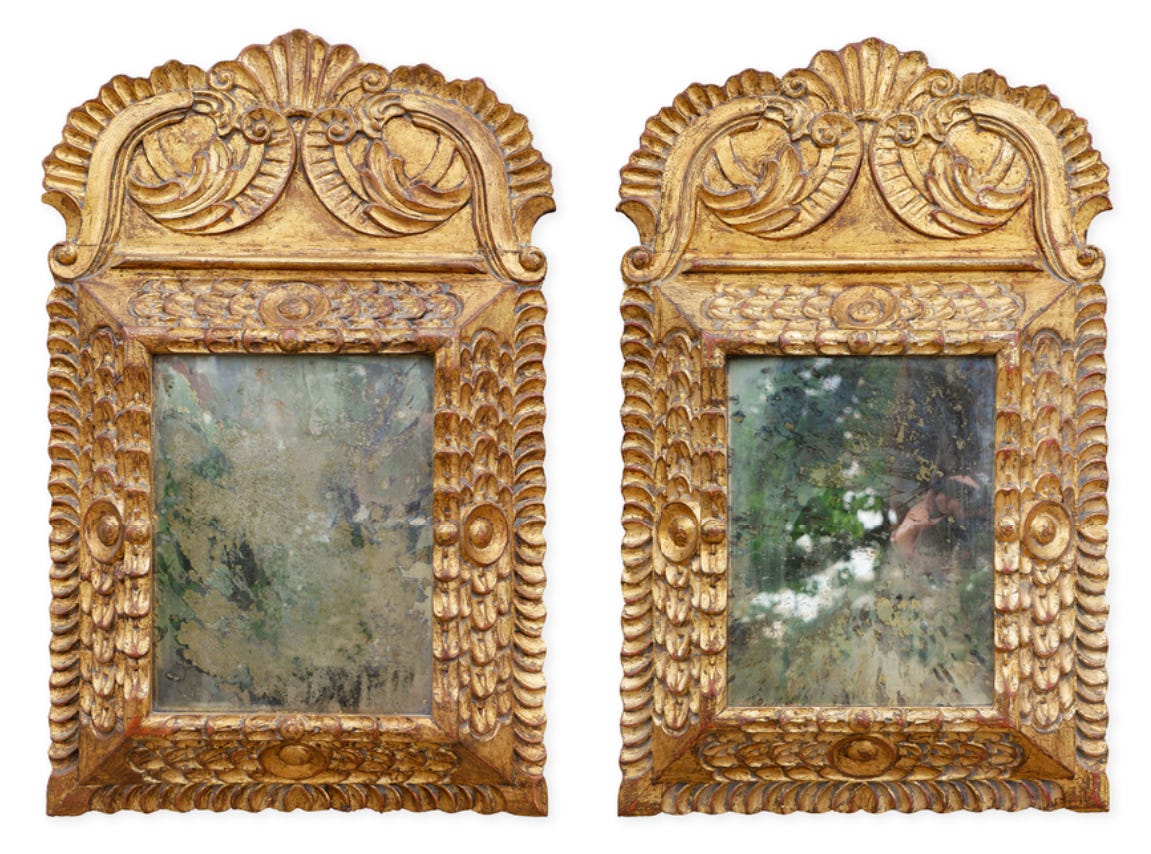
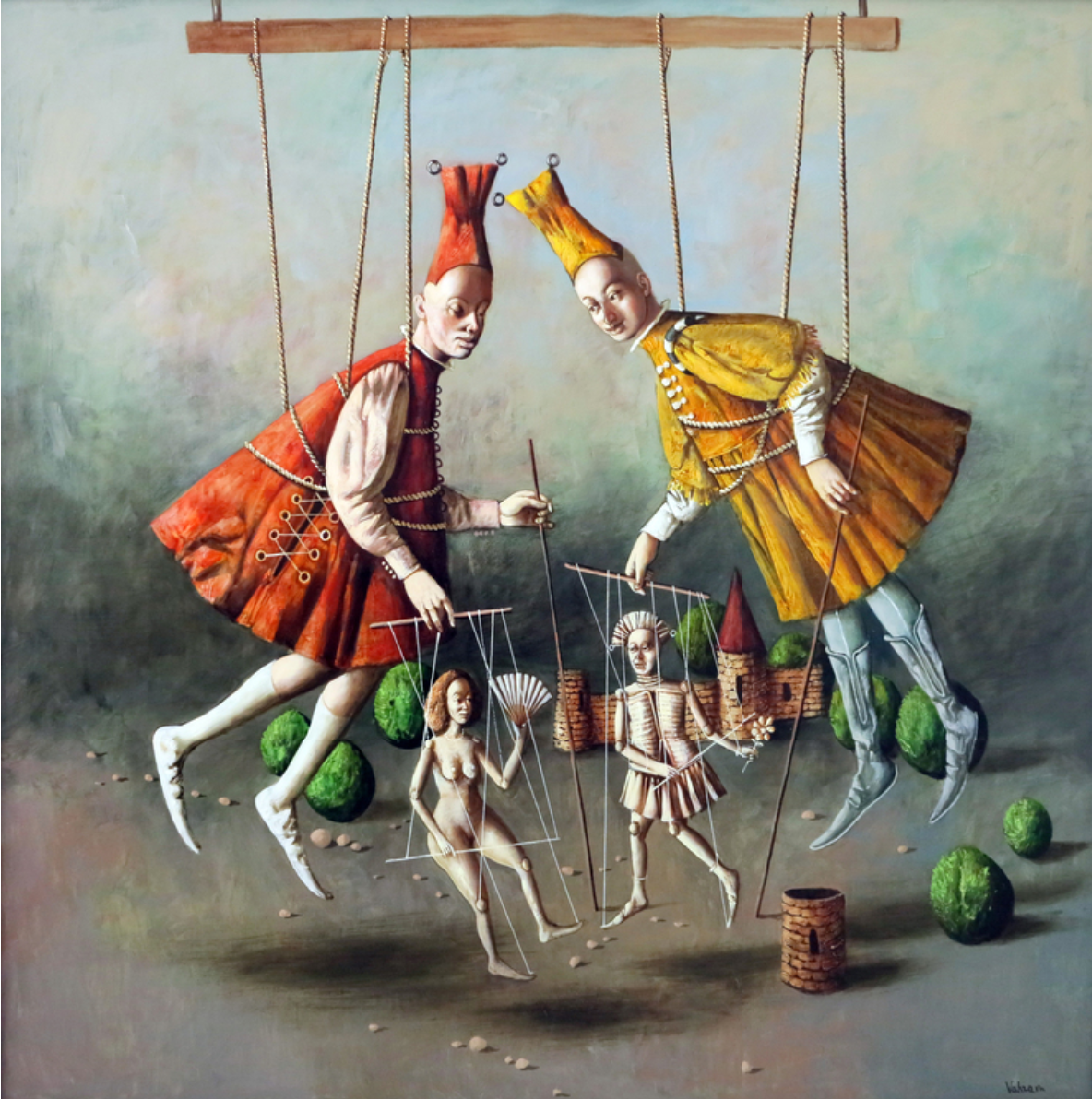


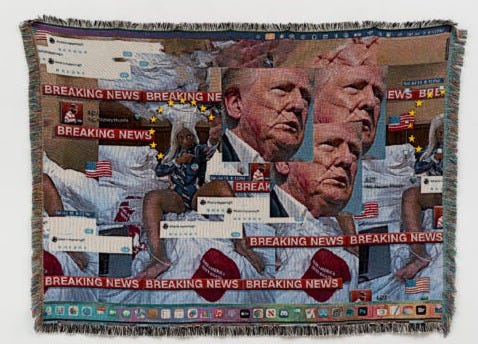
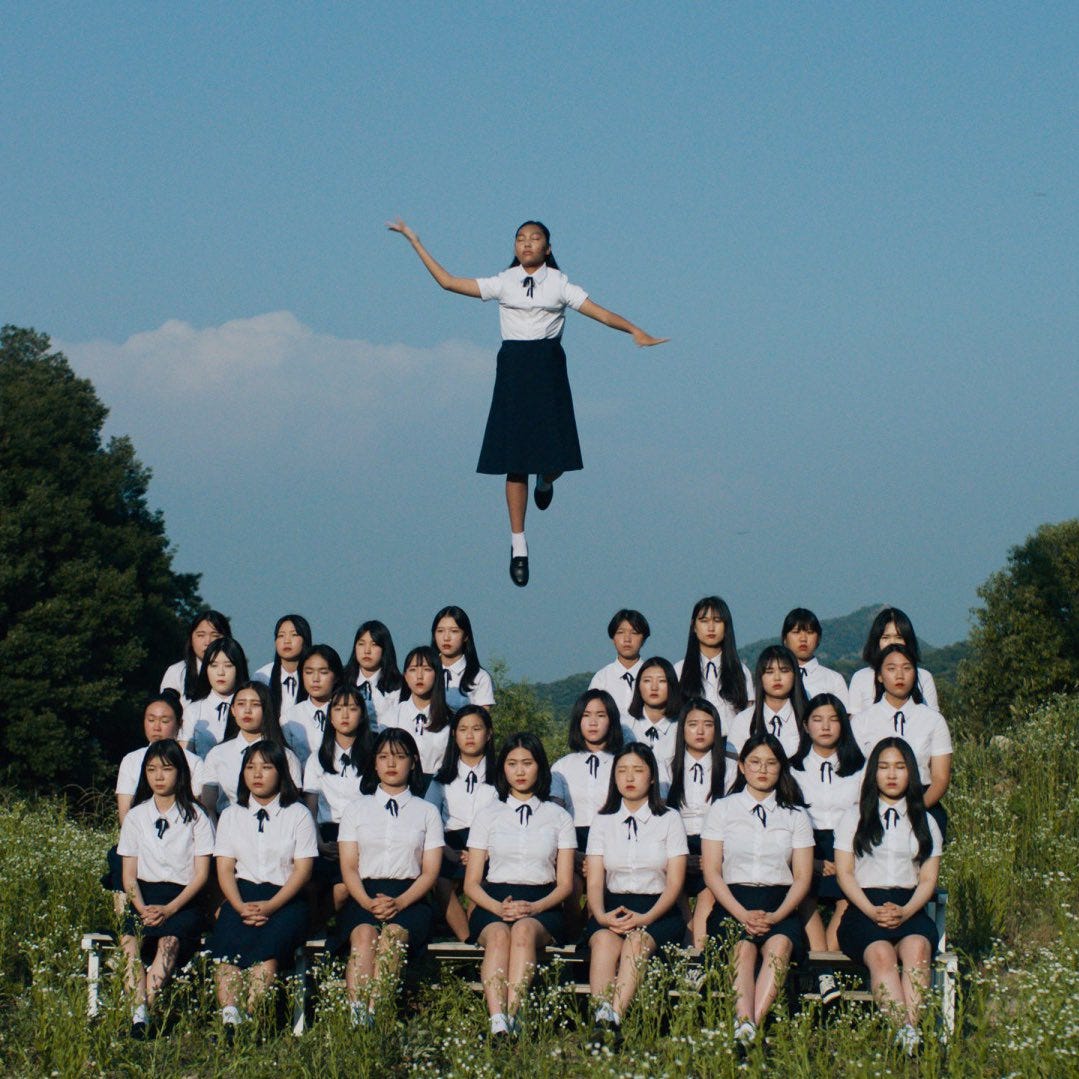

what a piece. i've been thinking a lot about time and how false it feels despite it's consequences being very real, how it feels like everything is repeating. i didn't have the words to express that anxiety but of course you would. thank you for writing this, and for your intelligence. it makes me feel sane.
Wow. Your language is so beautiful, descriptive, but still concise. This was such a fantastic read. The insight into reflection and the way it shows up daily is so interesting. It reminds me of that idea of mirrors being too accessible now. Thinking about a time before mirrors when one only saw oneself in still bodies of water where they had to stoop down and assert a very specific position that hails to that water for reflecting them. Now everything is a reflective surface one way or another. You’re amazing for this.
I also love how much you self reference cause yeah…actually I did say that!